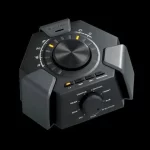Beginners please teach about the choice of water pumps
Introduction
When it comes to choosing a water pump, beginners might find the task overwhelming. With a wide variety of options available in the market, it can be difficult to determine which water pump suits your needs best. In this article, we will guide beginners on the factors to consider while selecting a water pump.
Types of Water Pumps
There are several types of water pumps to choose from, and each serves a specific purpose. Understanding the different types can help beginners make an informed decision:
1. Centrifugal Pumps: These pumps are commonly used for domestic purposes and agricultural irrigation. They work by converting rotational kinetic energy into hydrodynamic energy, creating pressure that moves the water.
2. Submersible Pumps: As the name suggests, submersible pumps are designed to be submerged in water. They are commonly used in wells, boreholes, and underground water sources. Submersible pumps offer high efficiency and are suitable for deep water applications.
3. Diaphragm Pumps: Diaphragm pumps use a flexible diaphragm to displace water. They are known for their versatility and ability to handle a variety of fluids, including abrasive and corrosive liquids. These pumps are commonly used in industrial applications.
4. Reciprocating Pumps: Reciprocating pumps operate by using a piston or plunger to move water. They are highly efficient and commonly used for high-pressure applications, such as firefighting or hydraulic systems.
Factors to Consider
Choosing the right water pump involves evaluating various factors. Here are some important considerations for beginners:
1. Flow Rate: The flow rate refers to the amount of water a pump can deliver per unit of time. It is essential to determine the required flow rate based on your specific needs, such as the size of the area to be irrigated or the amount of water needed for a particular application.
2. Head Pressure: Head pressure is the vertical distance the pump can lift water. It is crucial to consider the head pressure requirements, especially if the water needs to be pumped to higher elevations.
3. Power Source: Water pumps can be powered by electricity, gasoline, diesel, or even solar energy. Consider the availability and cost of the power source before selecting a pump.
4. Durability and Maintenance: Look for a water pump that is durable and requires minimal maintenance. Read reviews and research the brand’s reputation for reliability before making a purchase.
Conclusion
Choosing the right water pump may seem daunting for beginners, but by considering factors such as the pump type, flow rate, head pressure, power source, durability, and maintenance requirements, you can make an informed decision. It is always recommended to seek advice from experts or consult with professionals in the field to ensure you choose the most suitable water pump for your specific needs.
.webp)
